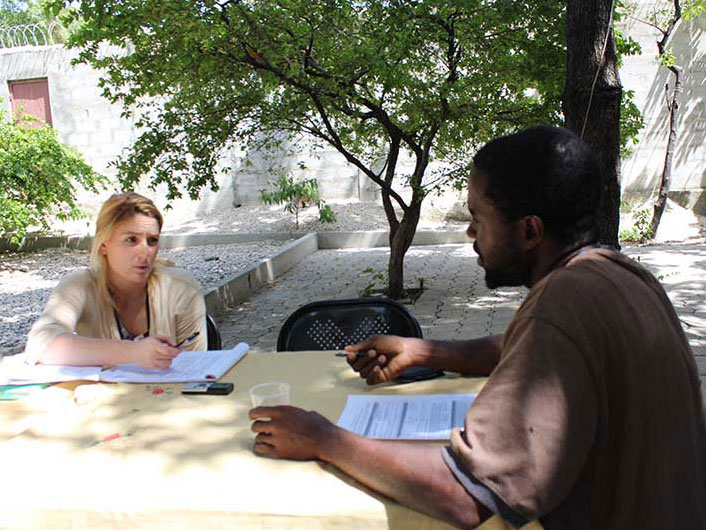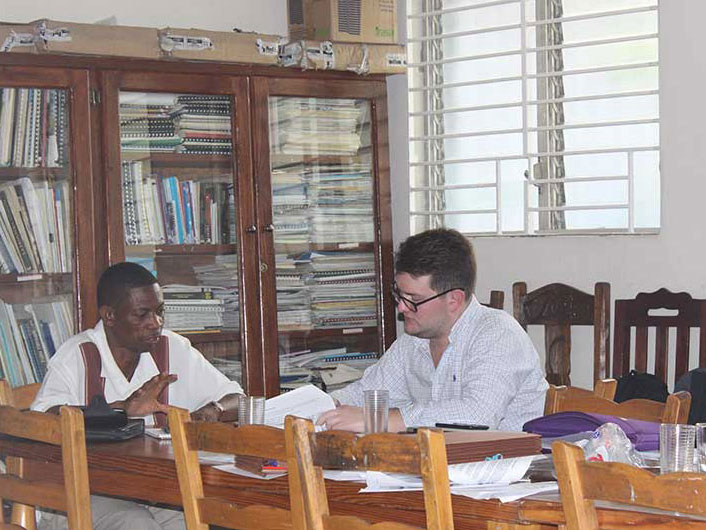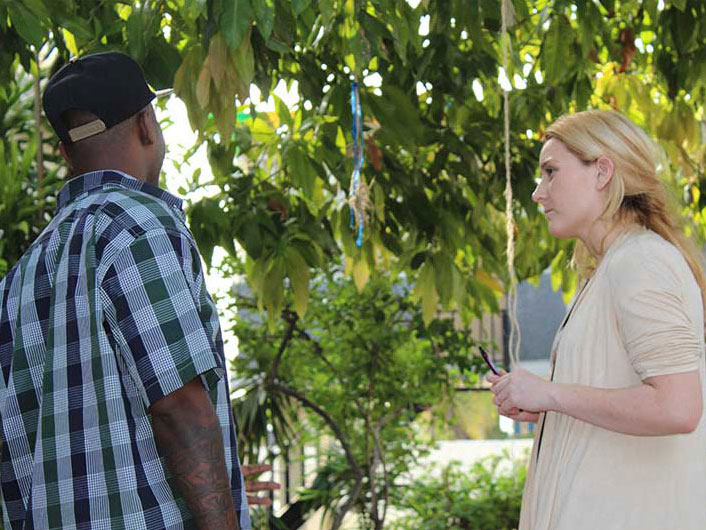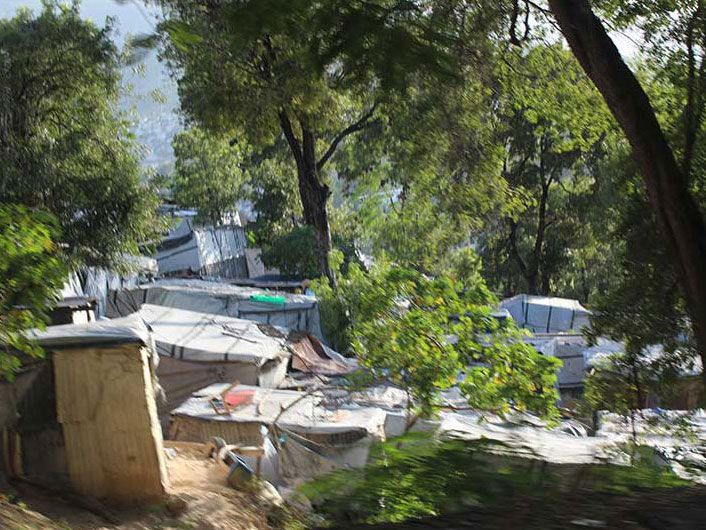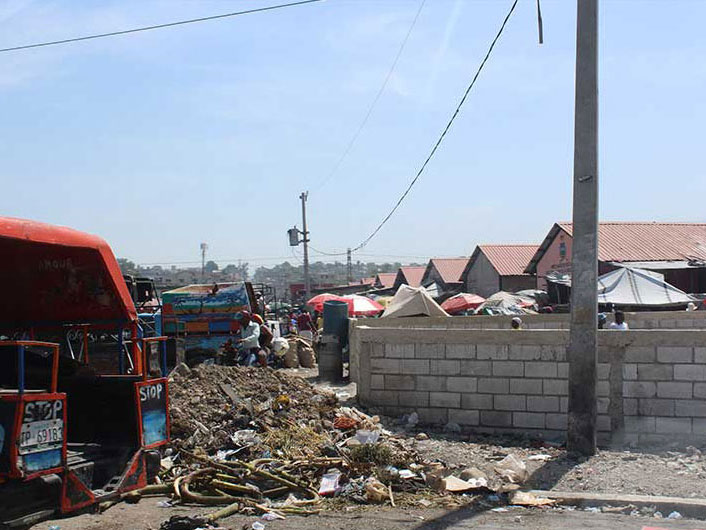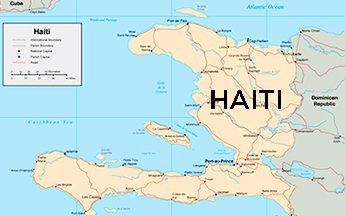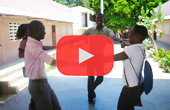Until recently, Haitian deportees were routinely jailed upon their return home, but many still face little hope for the future.
Often they are here legally, permanent residents of the United States and Green Card holders. Some of the Haitian ex-pats are married, some with children who are U.S. citizens.
But if they have a criminal record in their past—even something as minor as failure to return a rental car on time—they face deportation.
The issues surrounding the deportation of Haitian immigrants are deep and complex. A wide range of crimes can subject a person to deportation. It doesn’t matter if the crime was nonviolent in nature, or if the individual has completed the sentence and is considered in good standing.
And that doesn’t sit right with some. Especially when the place people are being sent back to continues its struggle to rebuild following a devastating January 2010 earthquake.
The U.S. prides itself on being a human rights leader. What we have been documenting calls that claim into question.
In late 2010, less than a year after that major earthquake decimated Port-au-Prince and at a time a cholera epidemic was sweeping the country, students in the University of Miami’s School of Law got wind that the U.S. government was starting to round up Haitians in South Florida for deportation.
“We have to do something,” Immigration Clinic student Thomas Oglesby, A.B. ’00, J.D. ’11, told his mentor at Miami Law.
The U.S. was sending immigrants home to a country ill equipped to handle the influx of deportations. Until recently, they routinely ended up in squalid jails, holding pens, or mental institutions. Some were assumed to be gangsters since they had been kicked out of the U.S. Nearly all have little hope of a bright future and seeing their families again.
In January 2011, Miami Law’s Human Rights Clinic and Immigration Clinic, along with several other advocacy groups, filed a petition with the Inter-American Commission on Human Rights to stop the deportations. They were successful in getting a brief reprieve in early 2011—but that was issued only after a deportee died in a Haitian detention center. The deportations have since resumed, and as many as 50 Haitians a month are sent home.
Haitians are suffering on many levels when they arrive back in Port-au-Prince. There are no jobs to be had and medical care is difficult to come by. Even five years after the earthquake, Haiti continues to try to rebuild and rebound from that catastrophe. The plight of deportees is not high on the list of imperatives.
“The U.S. prides itself on being a human rights leader,” says Rebecca Sharpless, clinical professor and director of the law school’s Immigration Clinic. “What we have been documenting calls that claim into question.”
Miami Law faculty and students have made four trips to Haiti since the earthquake to meet with deportees and chronicle and document their situations once on the ground. They have also met with Haitian government officials, and representatives of nonprofits trying to help Haiti recover.
The most recent trip was in early October 2014 when Romy Lerner of the Immigration Clinic and Kelleen Corrigan of the Human Rights Clinic traveled to Port-au-Prince with students Geoffrey Louden, J.D. ’15, and Lauren Geraghty, J.D. ’16.
The U.S. government, says Lerner, “is knowingly deporting men and women away from their families to a country which is still—five years after the earthquake—a disaster zone in many ways. Among these deportees are individuals with serious physical and mental illnesses who can’t access the care they need because of conditions in Haiti.”
Miami Law faculty and students have also traveled to Louisiana where Haitians are being held prior to deportation to interview them before they leave the country. And they have gone to Washington, D.C. to appear before the Inter-American Commission on Human Rights.
“The U.S. must comply with its international and domestic legal obligations as well as its own policies,” says Corrigan. “We are working to ensure that our country’s Haiti deportation policy fully comports with these commitments.”
Sharpless, Corrigan, Lerner, and others contend the U.S. government is guilty of committing human rights violations through the deportation process. Miami Law’s Human Rights and Immigration clinics intend to issue a public report in early 2015 that will outline alleged violations and injustices, and the impact the deportation process has had on the families of deportees who continue living in the U.S.
“We’re trying to shine a light on the United States’ decision to send people back to post-earthquake Haiti,” says Sharpless.

